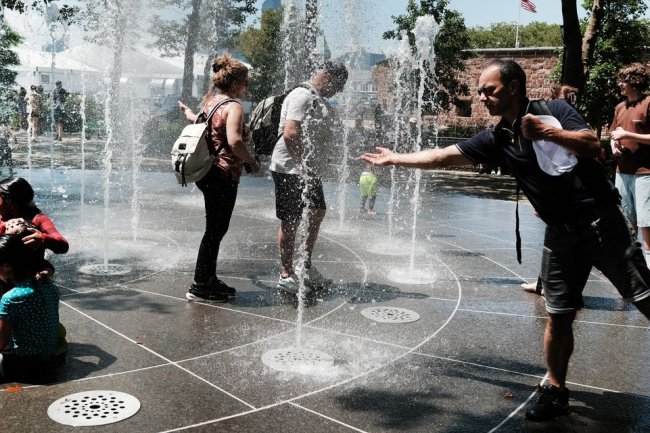The French Riots and the Broader European Underclass
A culture of dependency and macho criminality is also thriving elsewhere in Western Europe. By Dominic Green July 3, 2023 6:53 pm ET A protest in Nanterre, France, June 29. Photo: Aurelien Morissard/Zuma Press As the riots in France abate, the reckoning starts. President Emmanuel Macron blames the copycat contagions of social media and videogames. That’s shooting the messenger. The message itself lies in the incident that sparked the riots. A deep-rooted dynamic of disorder has set France’s police against teenagers and young men from immigrant backgrounds. The law-abiding majority now faces the consequences of the state’s long failure to enforce the law. On June 28 in Nanterre, just west of Paris, two police officers stopped Nahel Merzouk, a 17-year-old driving a car with Polish license plat


A protest in Nanterre, France, June 29.
Photo: Aurelien Morissard/Zuma Press
As the riots in France abate, the reckoning starts. President Emmanuel Macron blames the copycat contagions of social media and videogames. That’s shooting the messenger. The message itself lies in the incident that sparked the riots. A deep-rooted dynamic of disorder has set France’s police against teenagers and young men from immigrant backgrounds. The law-abiding majority now faces the consequences of the state’s long failure to enforce the law.
On June 28 in Nanterre, just west of Paris, two police officers stopped Nahel Merzouk, a 17-year-old driving a car with Polish license plates. When he attempted to accelerate away from the police during their interaction, one of the officers, Pascal Prache, shot Merzouk in the head. Prosecutors have charged Mr. Prache with “voluntary homicide by a person in authority.” It’s only the latest in a series of police-brutality cases involving white officers and nonwhite youths.
Merzouk had no criminal convictions, but not for lack of effort. His judicial file, which happened to reach France’s Europe 1 channel, is said to contain 15 items, including driving with false license plates, driving without insurance, drug dealing and possession, “rebellion against police officers,” and several charges in juvenile courts for resisting arrest. He didn’t deserve to die. The law-abiding, hard-working majority in the outlying housing projects known as banlieues don’t deserve to live amid endemic crime and violence.
Though France’s historical circumstances are unique, there is nothing uniquely French about the country’s present discontent. Western European societies were historically cohesive and “high-trust” societies. High immigration rates and a systemic failure to integrate the children of immigrants have in recent decades balkanized them into low-trust, high-crime societies, especially in the cities. An underclass culture of dependency and macho criminality contributes to high crime rates and increasingly violent interactions between youth and police.
Bad blood from France’s colonial era may divide whites from the brown-skinned children and grandchildren of immigrants from North Africa and the Middle East. But that doesn’t explain everything. Germany never had an empire in North Africa or the Middle East, yet it too struggles to assimilate the children of immigrants. Meantime, Britain’s population of immigrant descent also largely comes from ex-British colonies, yet it population isn’t at odds with the British state. Prime Minister Rishi Sunak’s Indian-descended parents emigrated from East Africa in the 1960s.
Islam may now be the established religion of the banlieues, and ranting imams may be racking up the hits on TikTok as they celebrate the coming conquest of France, but Islam is also a secondary phenomenon in these riots. The vandals may feel that France treats Islam as a second-class religion, but this is a force multiplier for their general sense of exclusion and hostility. Their desecration of Nanterre’s memorial to French Jews deported during the Nazi occupation reflects their contempt for Jews. It was also an assault on an official symbol of France, like their attacks on police stations and municipal libraries.
The rioters are as French as rioting itself. Most of them seem to be native-born French, showing the same social pathologies as the underclass everywhere. Much of the international media attribute the riots to the ever-mitigating emotion of “anger,” in this case at excessive racial profiling by the police at random traffic stops. But it’s impossible to know if the rate at which nonwhites are stopped is proportionate to, or even below, their rates of arrest or conviction. French law prohibits collecting information on religion and race in census or criminal-justice statistics.
The data on the intensifying hostility between petty criminals and overwhelmed police are clearer. In 2017, in the aftermath of terrorist attacks and with an election imminent, the government of Mr. Macron’s Socialist predecessor, François Hollande, relaxed restrictions on the police’s use of firearms. Police shootings at random traffic stops increased sharply; in 2022, 13 were killed. Reuters reports that the “majority of victims since 2017 were Black or of Arab origin.”
The last major outbreak of rioting in France was in 2005 and was largely confined to the banlieues. This time, however, rioters looted French city centers, attacking police with shotguns, Molotov cocktails and fireworks. The unions representing more than half of France’s police officers said this week that they are fighting “savage hordes” and “vermin.” This is the language of civil war.
If the police are losing a struggle for control of the streets, there will be electoral consequences across Western Europe. Nationalist French politicians Marine Le Pen or her niece Marion Maréchal will continue to narrow the gap with the centrist parties as the country approaches its 2027 presidential elections. In Germany, the far-right Alternative for Germany party is now polling at 20%, ahead of the Social Democrats. The structural consequences will be felt in Brussels, where the European Parliament is already a repository for nationalist protest votes. An insurrection can be crushed. Democratic government can rule only by assent.
Mr. Green is a Journal contributor and a fellow of the Royal Historical Society.
Journal Editorial Report: The week's best and worst from Kim Strassel, Allysia Finley, Bill McGurn and Dan Henninger. Images: EPA/AP/PA/Reuters Composite: Mark Kelly The Wall Street Journal Interactive Edition
What's Your Reaction?






















